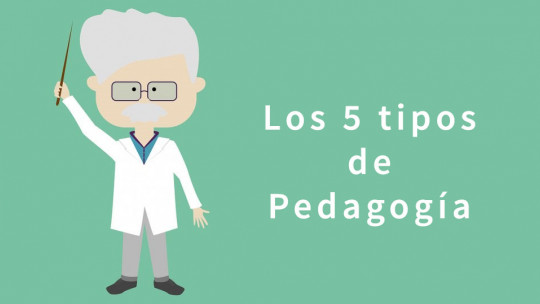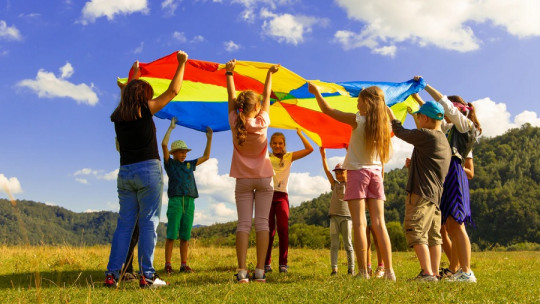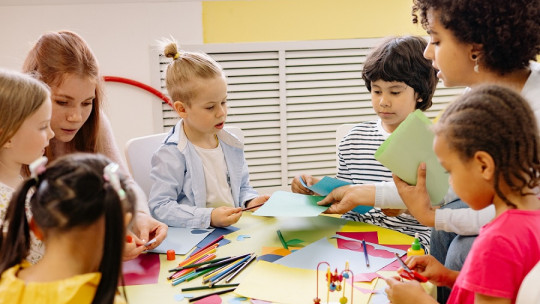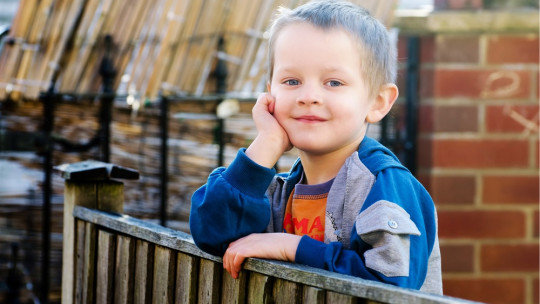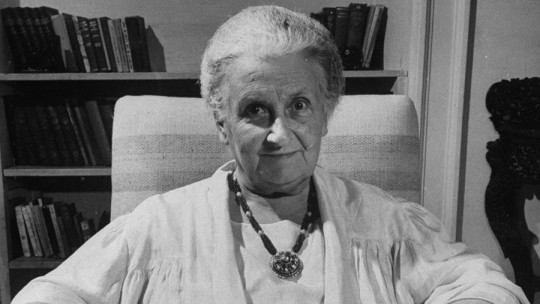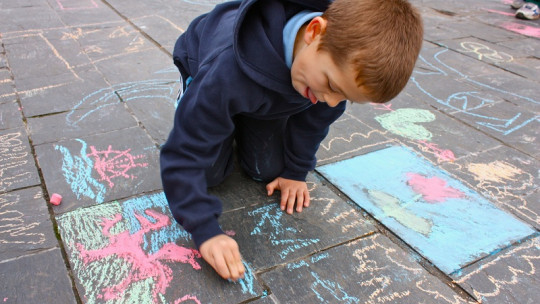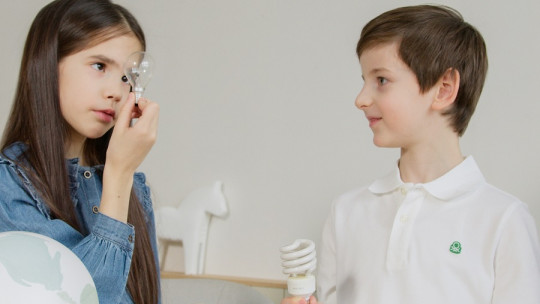
According to alternative learning methodologies, young children are already connected to their inner selves. Adults and the environment are what disconnect the little ones from their true being and their motivations.
unschooling, as a learning methodology, is based on respecting the genuine interests of children. This alternative pedagogy emphasizes free, undirected play as a primary component of children’s education. In its proposal it is more radical than homeschooling.
Unschooling, in its most basic form, is not based on bringing school home, nor on leaving children to their free will. Unschooling consists of creating a learning environment that encourages children’s learning capacity, based on the idea that the more we learn, the more something naturally calls us. Really, it is innate interests that maintain our motivation and our commitment.
What is unschooling?
Unschooling, also known as deschooling, establishes the idea that the main learning method is the chosen activities In other words, unschooled children learn through their daily lives and experiences. Acquiring knowledge occurs through playing, working, traveling, experimenting with hobbies, interacting with family, not just taking classes.
Unlike lessons and curricula provided by schools, Unschooling supporters believe that personal experiences are more significant for learning than formal education They also believe that more meaningful learning – based on experience – equates to more useful and broader knowledge.

Based on this methodology, children do not usually take classes or attend fixed times in which they must learn a certain subject. Instead, they explore different activities that they initiate and pursue.
Origin and criticism of unschooling
John Holt is considered the father of unschooling; The term was coined in the 1970s. Homeschooling has received a lot of media attention due to public debates about it. Unschooling as a methodology has not received as much interest; However, its popularity has increased in recent years, as has that of other alternative pedagogies.
This pedagogical trend suggests that Its educational method is a more efficient and child-friendly version of traditional schooling Proponents of unschooling believe that self-directed education in a diversified, often natural, environment is a more effective and sustainable way to educate than school. The ability to self-direct allows children to retain their innate curiosity and desire to discover new things.
Also allows them to understand why certain norms, values, skills and properties are important This encourages children’s creativity and individuality, while rewarding them for being innovative. In addition, unschooling works on children’s ability to orient themselves and navigate unfamiliar environments, allowing them to quickly acquire and develop new skills.
However, this educational methodology is not exempt from criticism; its detractors believe that unschooling is an extreme philosophy: they worry that unschooled children will be neglected, miss out on important things, or lack social skills. Also They worry that children lack structure and discipline or who are unable to cope with difficult situations or adapt to a rigid environment in adult life.
Regarding this last point, unschooling argues that children are better prepared for life outside of school due to their ability to face new and often uncomfortable situations. It is evident that preparing in real-world environments helps you cope with real life, surely more than textbooks.
Methods and philosophy
In unschooling, learning arises naturally or autonomously, for the child to really understand and remember something, they must be intrinsically motivated by it. This can come from a need or curiosity, or from a passion or interest in the topic. Learning is driven by intrinsic motivation and curiosity rather than someone else’s extrinsic motivation deciding what to learn, when to learn it, and how quickly. There are a series of methods and philosophies for the practice of unschooling.
1. Natural learning process
Unschooling emphasizes that learning is a natural process that occurs all the time. Curiosity is seen as an innate quality in everyone, and it is believed that children constantly want to learn spontaneously.
This reasoning can be used as a basis for the idea that putting children in schools designed for a one-size-fits-all approach is inefficient. Traditional schools require each child to learn specific subjects in a specific way, at a certain pace and at an exact time. This is regardless of your needs, interests, present or future objectives or any prior knowledge you may have on the subject. In the classroom, students miss out on practical, real-world experiences that cannot be found in that context
Furthermore, people have different ways of understanding and processing new information. This is called ‘learning style’. Psychological research shows that children have different ways of apprehending. Unschooling tries to respond to these intrinsic differences.
The child at the center of the learning process
The body of essential knowledge is a collection of facts and skills considered essential. Unschooling establishes that learning to learn is more important than learning any specific subject
John Holt believed that children should be exposed to the world around them. By interacting with their environment, children are able to know what is really important to them, and to others. Therefore, they can choose their own learning path, he believes, better than anyone else could choose for them. However, many disagree with this notion and believe that there is a specific set of knowledge that we should all have.
Additionally, children develop at different rates, for example, children can learn to walk between eight and fifteen months of age. Their ability to walk, talk, and learn things is not determined by when they were born. Unschooling is about adapt to these differences
It is believed that children who learn through self-directed learning are more likely to continue learning as adults. They can also learn any new topic naturally, or delve into topics that they feel are not covered enough.
The paper of the parents
Parents have the job of facilitating their children’s understanding of the world by sharing books, articles and activities with them. Also They help them satisfy their interests by locating people with knowledge to go further, these people can be teachers or also professionals in a specific field, for example a mechanic or a computer scientist. Parental involvement is especially important for younger children; Little by little, as they grow, they need less help finding resources and creating plans to learn. The unschooling approach to education is not hands-off; It is based on interests.
Educational paradigm shift
It is almost impossible to understand the principles of unschooling without making a significant change in mindset. unschooling It goes against many common beliefs Consequently, trying to understand this learning philosophy can cause some friction in thinking. This process can be uncomfortable for children and parents as they adjust to the new way of learning. It is difficult to realize that it is not so important what we do, but why we do it.
Few things are more important than understanding the why of our actions Doing so helps us change our perspective and overcome assumptions made about education.
Unschooling and home education
Unschooling is considered a form of home education; It is usually held somewhere other than a school. However, unschooling differs significantly from other homeschooling methods
Instead of being directed by a teacher or a curriculum, children learn by exploring their natural curiosities. These methods are similar to the open classroom concept of the 1970s, without the classroom, but also without the grades.
Children receive resources from their parents. Parents facilitate their children’s education by helping them navigate and make sense of the world around them. They also help them implement learning plans and goals for the near and distant future.

